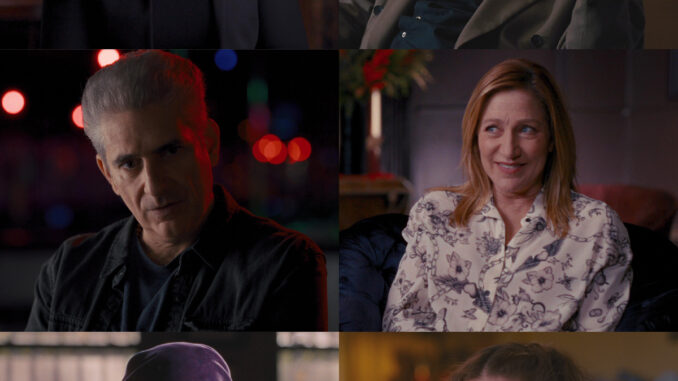
The Sopranos is more than just a television show; it’s a cultural phenomenon that has shaped the landscape of modern storytelling. And now, with the HBO Original Documentary Wise Guy: David Chase and The Sopranos streaming on Max, it’s the perfect time to revisit what made this series iconic. Whether you’re a die-hard fan or just curious about why everyone raves about it, let’s dive deep into the family reunion of themes, characters, and legacy that The Sopranos represents.
The Rise of the Anti-Hero: Tony Soprano’s Journey
When The Sopranos first aired in 1999, it introduced audiences to Tony Soprano, played by the incredible James Gandolfini. Right off the bat, viewers were intrigued by this complex character who was both a ruthless mob boss and a vulnerable family man. This duality was revolutionary. For the first time, the anti-hero took center stage, and it was riveting.
A Relatable Villain
Tony was relatable in ways that traditional villains often aren’t. He struggled with anxiety and depression, seeking therapy to cope with his dual life. This portrayal not only humanized him but also opened a dialogue about mental health that was rarely seen in mainstream media at the time. In the documentary, David Chase, the genius creator behind the series, reflects on how this complexity was a game-changer. He didn’t just want to tell a story about organized crime; he wanted to explore the emotional landscape of its characters.
A Family Man in a Dangerous World
The family dynamics in The Sopranos are equally fascinating. Tony’s relationship with his mother, Livia, and his wife, Carmela, adds layers to his character. His struggles as a husband and father juxtaposed with his violent lifestyle make for compelling viewing. Chase’s writing encapsulates the idea that family can be both a source of strength and a catalyst for conflict. As you watch the series, you can’t help but feel the weight of Tony’s choices—how they affect not just him, but everyone around him.
The Iconic Ensemble: More Than Just a Supporting Cast
One of the standout features of The Sopranos is its rich ensemble cast. Each character brings something unique to the table, making the world of the show feel real and relatable.
A Gallery of Misfits
From the loyal yet troubled Paulie Walnuts to the calculating Christopher Moltisanti, the supporting characters are more than just sidekicks. They each have their arcs, struggles, and moments of vulnerability. The show doesn’t shy away from showing the consequences of their choices, whether they’re on the right side of the law or not.
The Women of The Sopranos
Let’s not forget the powerful women in the series, especially Carmela Soprano, played by Edie Falco. She’s more than just Tony’s wife; she’s a force in her own right. Throughout the series, we see her grapple with the moral implications of Tony’s lifestyle while also striving for independence and fulfillment. This portrayal adds another layer to the narrative, highlighting how the mafia lifestyle impacts everyone, regardless of gender.
The Themes that Resonate: Family, Power, and Morality
At its core, The Sopranos explores themes that are universally relatable. The intersection of family and power is a driving force behind many of the show’s most intense moments.
Family Ties: The Heart of the Series
Family loyalty is both a blessing and a curse for the Soprano family. As Tony navigates his responsibilities as a father and mob boss, the tension escalates. The series frequently poses the question: What lengths will you go to for family? The documentary dives into this theme, providing insights from the cast and crew on how these familial bonds were crafted and portrayed.
Power Dynamics: The Push and Pull
Power struggles are prevalent throughout the series, both in Tony’s professional life and personal relationships. The show examines how power corrupts, often leading to devastating consequences. The tension between Tony and his rivals, as well as within his own crew, showcases the dangers of ambition and greed. Chase’s ability to weave these elements together is one of the many reasons why The Sopranos remains relevant.
A Legacy That Endures: Impact on Television and Pop Culture
The Sopranos didn’t just change the way we look at TV; it paved the way for a new era of storytelling. It set a precedent for character-driven narratives and complex plots, influencing countless shows that followed.
The Birth of Prestige Television
With its multi-layered characters and intricate plots, The Sopranos is often credited with ushering in the age of prestige television. Series like Breaking Bad and Mad Men owe a significant debt to Chase’s groundbreaking work. The documentary sheds light on this influence, showcasing how the storytelling techniques established in The Sopranos have been adopted and adapted by many shows in the years since.
Pop Culture Phenomenon
From iconic quotes to unforgettable scenes, The Sopranos has left an indelible mark on pop culture. References to the show pop up everywhere, and its impact can be seen in various forms of media. The documentary takes viewers on a nostalgic journey, reminding us of the moments that have become synonymous with the series.
Conclusion: A Reunion Worth Celebrating
As Wise Guy: David Chase and The Sopranos streams on Max, it’s clear that the legacy of The Sopranos is as strong as ever. The themes of family, power, and morality continue to resonate, making it a timeless piece of art. Whether you’re revisiting the series or diving into the documentary for the first time, there’s a lot to unpack.
